Forum
Since time when films were created, creators have been naturally divided into two categories: “Front stage” and “behind the scenes”, for which they have been compiling moving stories in their own way and leading the audience on fascinating journeys of films. Performers and directors, from “front stage” and “behind the scenes”, are undoubtedly the core of a film, while together constituting the charm of performance and making the film a real art of “storytelling”.
In order to close the gap between performing art and the audience and help young directors and performers have more effective dialogues, the 14th Beijing International Film Festival (BJIFF) organized the “Screen Acting Open Courses”, for which Liu Tianchi, an acting teacher at the Central Academy of Drama, Liu Jiangjiang, a director, and Huang Yao, an actress, were invited to share with the audience their experiences in the field to have in-depth analysis of the core and true meaning of the performing arts.
▌Tell virtual stories with real attitudes
Film is the art of fiction, an art form that originates from life but goes beyond life. Interpreting fictional stories with a real attitude is the approach selected by the panelists.
Director Liu Jiangjiang shared his experience in helping young actress Yang Enyou to portray her character in the film Lighting Up the Stars, “We spent about 20 days or so helping her get used to using the dialect without reading the script. Then we teach her to play mahjong and dance on squares to help her better understand the role. In fact, we didn't talk to her about the script or what the role was until the filming started. Instead, we just made her look more like a child brought up by her grandmother.”
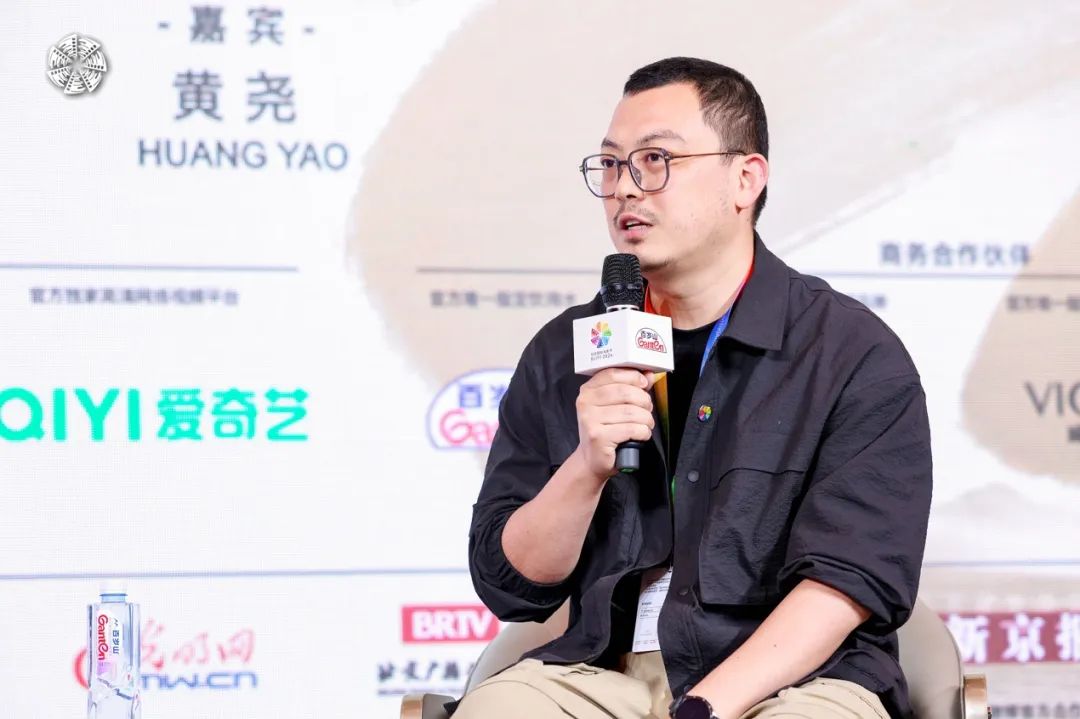
Liu Jiangjiang
On how he convinced actor Zhu Yilong to star in Lighting Up the Stars, Liu Jiangjiang said all he could do was revise the script over and over again, “I think it was our script that impressed him.” In order to better connect Zhu Yilong and Yang Enyou, Liu Jiangjiang said that Zhu Yilong intentionally made barriers with Yang in order to help her fit in and inspire Yang’s true feelings.
Actress Huang Yao also impressed director Zhang Lv with her “real attitude”, thus getting her the chance to act in The Shadowless Tower. When she auditioned for The Shadowless Tower, there was no formal audition or other routine process. Instead, she met with director Zhang Lv in a café in the most natural way, communicating with him in a way that was closest to her real state. In her words, “I know about director Zhang Lv's works, and he has a very natural and life-like style, so I think he also wants to see the most real and natural side of me.”
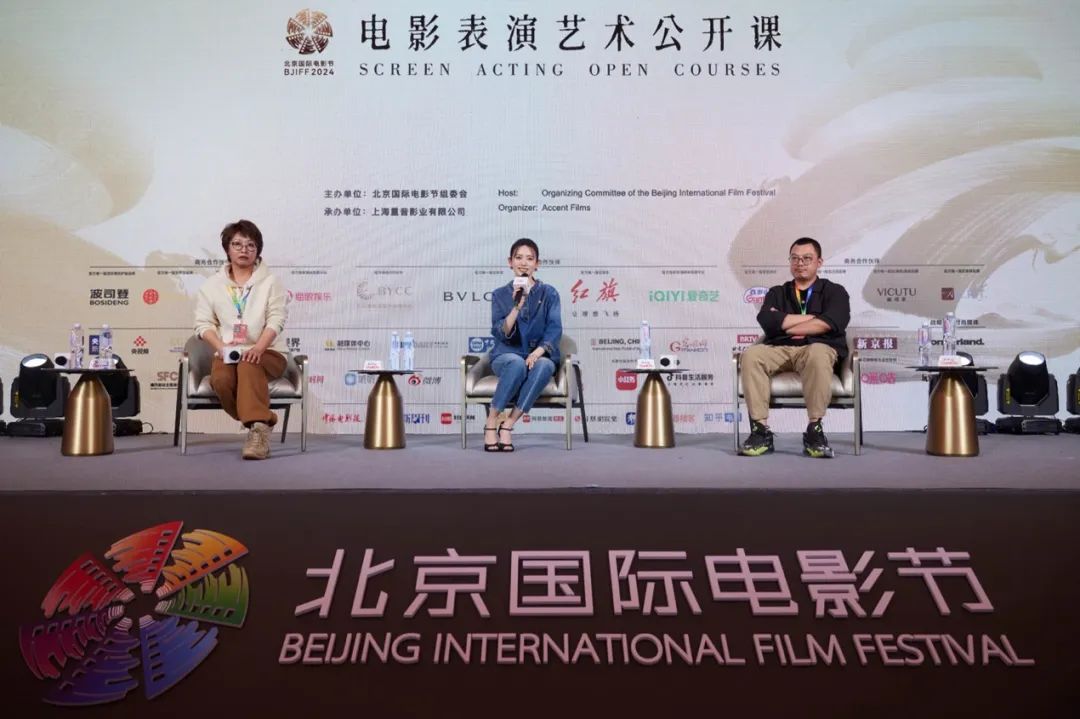
On the site
As a senior teacher engaged in performance teaching for more than 30 years, Liu Tianchi also emphasized the importance of “real attitude”, “For the young directors or our young performers, using the most authentic way may be more likely to get the opportunity to enter the door of film art.”
▌Mutual trust for mutual accomplishment
The way directors and performers get along has always been a topic of great interest in the industry. Actors and actresses, while interpreting the characters, should understand the director's thoughts, also the projection of the director’s spiritual world, which may inevitably feature the director's imprint. However, performers have to experience and comprehend the characters deeply, and use in their own understandings of the characters. When it comes to the complexity of such relationship, Liu Tianchi gave us a hint, namely “trust”. “If a director does not trust the actors and actresses he selects, there's no way to continue the cooperation.”
Actress Huang Yao also corroborated Liu Tianchi's views with her own experience. She said, “Trust is very important to me. The trust of directors in me is the greatest source of confidence for me as an actress.” At the beginning of her career, the biggest difficulty Huang Yao faced was the lack of self-confidence, which made it difficult for her to give her full attention to her performance on set. “I always feel like someone is watching me and judging me, but I knew it was really me judging myself.” After feeling the director's trust in her, she gradually threw away this judgment on herself and began to do her best to interpret her roles and enjoy the process of acting.
For young actors & actresses, Liu Tianchi offered a humorous and straightforward suggestion, “As a young actor or actress, you need to put your cell phones away from you as soon as possible now. Ask yourself 'what am I going to do for now' and leave the right of monitoring and evaluation to the director.”
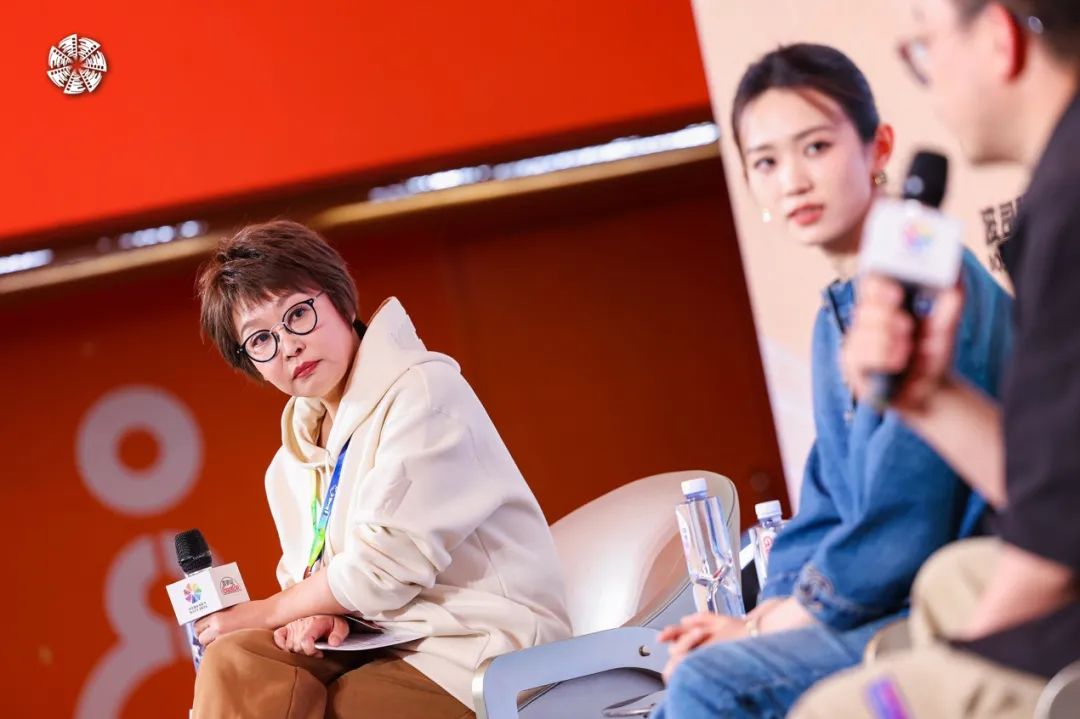
Liu Tianchi and Huang Yao
▌Improvise and on-site guidance
Acting has never been an armchair strategist. For an actor or actress, portraying a character in a prescribed situation is the “frontline battlefield” of the profession. At this event, Prof. Liu Tianchi solicited two propositional situations from the audience: “Unavoidable obstacles when applying for a job” and “losing a gold bracelet”, for which some young actors and actresses on the spot were invited for performance.
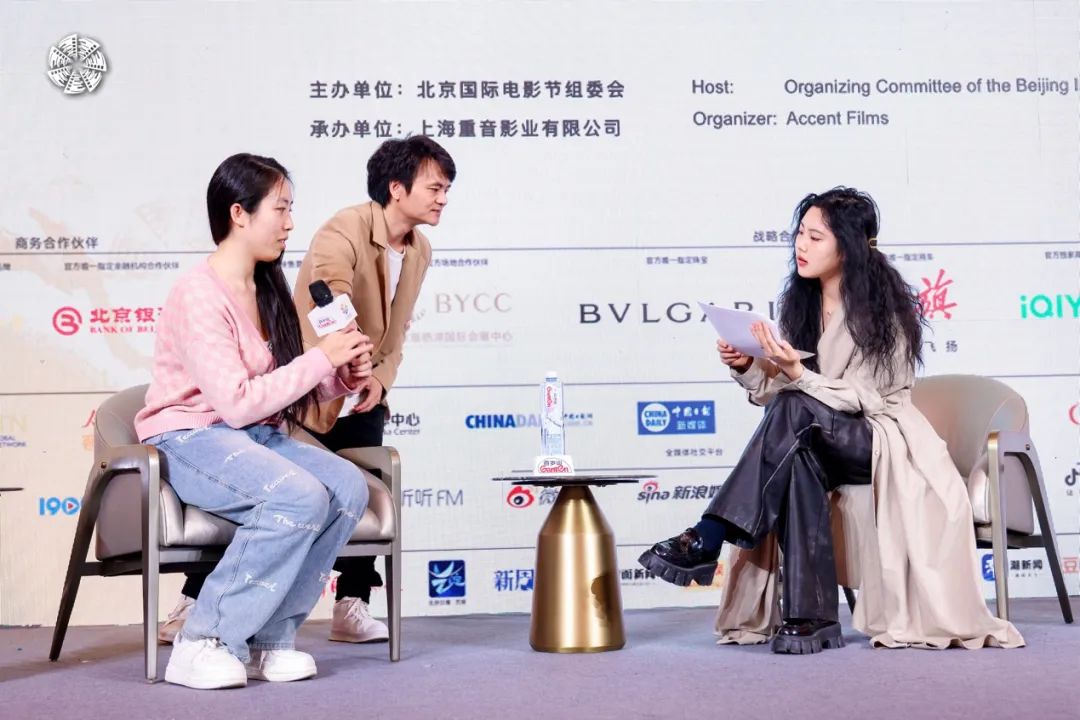
Improvisation by audience
After the performance, the three panelists gave the actors/actresses pertinent comments and suggestions.
Director Liu Jiangjiang said that the most important thing for a director is to give his or her own actors issued a specific “task”: “First of all, we need to complete the screenplay, give the performers more pivot points. As for this drama, whether the employment succeeds or not is in effect a task assigned to them. So, I think it is needed to provide more information to them.”
“When the director is auditioning for a scene, the performers may need more specific information.” Liu Tianchi said, “When that information is given to them, they would have a target point to run to. When we join the crew, two performers who are strange to each other happen to get the same scene. If the scene starts out with two strangers, it’s OK, I don't need to understand you because I just need to know you on the spot. But if it is a very complicated relationship that has been preset, and the two persons have a history with each other, I have to know you clearly. Whenever possible, it is necessary to define the relationship between characters first and then work out the relationship with the opposite character.”
Actress Huang Yao also cited director Zhang Lv's guidance during the filming of The Shadowless Tower as an example of the importance of a “task”: “Director Zhang Lv might suddenly say, 'Huang Yao, you just take your hat off and put it on the table.' This is based on the character's personality, and her usual style of doing things will tell her to do this.”
At the end of the event, Liu Tianchi concluded that, “Keep ‘task’ in mind. You can only understand what others said, what you are going to do, and what might be changed under the conditions to absolutely believe that you are going to accomplish the ‘task’. The director has given you this 'task', so in this situation, you can only believe in the 'task'.”
▌Role as the key
As the core in a film, the director plays a pivotal role in guiding the actors and actresses in shaping their characters, and it is the full cooperation between the director and the performers that creates the charm of the performing arts. Does a director have to know how to act? As for the questions raised by the audience, the panelists also gave their views.
Director Liu Jiangjiang banteringly said that he could not act, but also became a director, “I think what a director needs to do is to make choices, and what makes a good director is that he makes the most important choices properly, whether in the aesthetic sense or about the ‘standards’. Not all directors are good performers.”
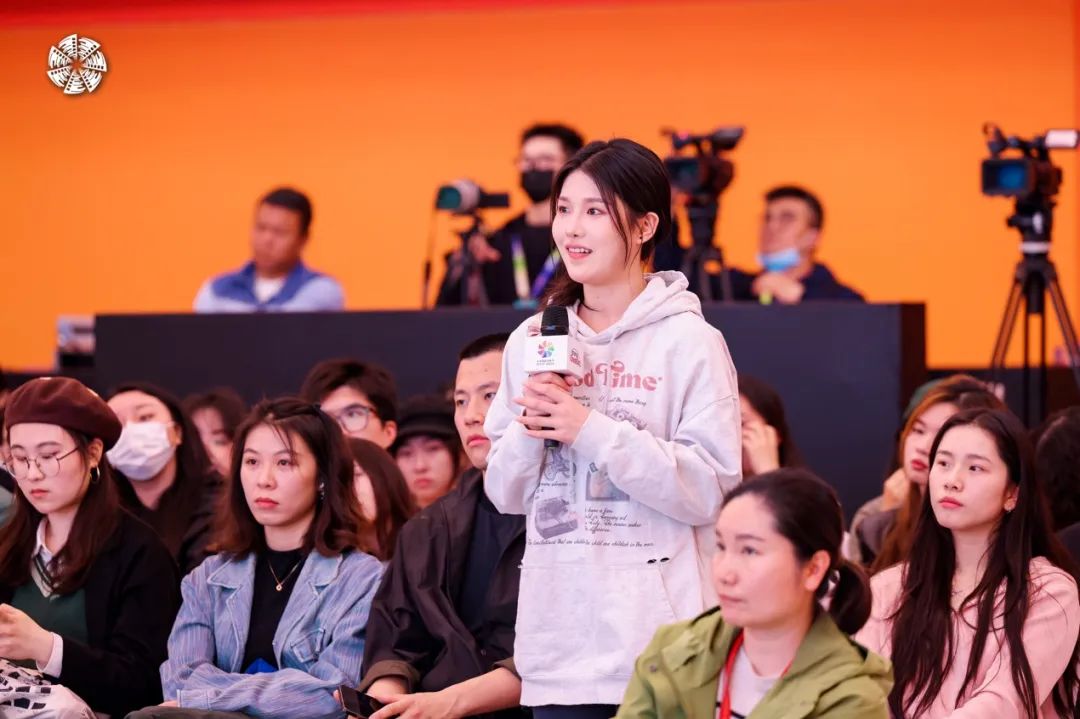
Q&A with audience
Liu Tianchi agreed with Liu Jiangjiang's point of view: “There are two kinds of directors in the world, namely ‘those who cannot act but know how to act’ and ‘those who know how to act and can act’. Both directors and performers are the most important partners in the process of re-creation, and both of them should ultimately understand the play, the people, and the image. Only under this premise can a good working condition be built between them. The director may have an accurate way of handling the performance, but he must understand the behavior of normal life, and even the emotions in human nature. He must be highly sensitive to communicate with the actors and actresses. The director cannot simply be a philosopher, but should be an expert in the art of cooking, in order to create chemistry with the actors and actresses.”
From life, but more than life; from performance, but more than performance. At the 14th BJIFF Screen Acting Open Courses, the three panelists shared their experience and attitudes on their career: Professionalism, dedication, and devotion. Let's look forward to another “Screen Acting Open Courses”, where we can again enjoy the wonderful stories on and off the screen.
Please download the Beijing International Film Festival APP for more interesting content

